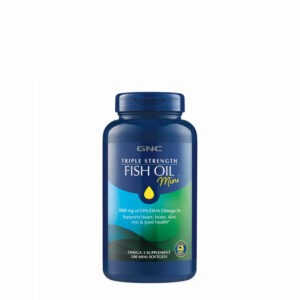
How much do you know about frequent urination at night?
Introduction
How many times do you get up to urinate on average each night? A US study found that men aged 20-49 who get up to urinate twice at night have a 2.5 times higher mortality rate later in life, and those who urinate three times a night have a 3.3 times higher rate. Aging is a contributing factor to frequent urination at night; approximately 40% or more of men aged 60-79 experience this problem. Frequent urination at night can also be a sign of underlying medical conditions, such as kidney failure, overactive bladder, or benign prostatic hyperplasia (BPH). Did you know that?
physiological problems
Waking up to urinate more than twice every night is a real nuisance and disrupts your sleep schedule. However, frequent urination at night can be a sign of illness. Depending on age, frequent urination at night may be caused by the following reasons:
30-40 years old
Sleep apnea, insomnia due to excessive internal heat
40-60 years old
Sleep apnea, insomnia, diabetes, kidney failure, benign prostatic hyperplasia (BPH).
60-70 years old
Sleep apnea, insomnia, diabetes, kidney failure, benign prostatic hyperplasia, dementia, heart failure, Parkinson's disease
There are so many possible causes of nighttime urination, and the older you get, the more problems you'll encounter. These are often related to urological issues such as the kidneys, bladder, and prostate. Urinary tract infections are also a contributing factor to frequent urination. However, most people ask why we normally urinate less at night than during the day. That's because we're asleep at night. If you have insomnia, the frequency of urination won't decrease.
During normal sleep, the brain secretes antidiuretic hormone, which relaxes the bladder and reduces nighttime urine production, allowing for restful rest and emptying the bladder in the morning. Unless the brain is experiencing oxygen deficiency or fails to send the signal to rest and relax (i.e., fails to secrete antidiuretic hormone), and urinary and cardiac problems have been ruled out, then the cause should be suspected as...Sleep apnea or delayed brain developmentPeople with sleep apnea will snore loudly at night and often wake up suddenly. Because the cessation of breathing causes the brain to lack oxygen, it also leads to a lack of antidiuretic hormone secretion.
有heart diseasePeople who cannot excrete water from their bodies normally tend to accumulate it in their lower body. When they lie down at night and gravity changes, the water in their lower body may be expelled into their bladder.Varicose veins in the legsPeople with this condition are also prone to frequent urination at night, so they should pay attention to elevating their legs more often and wearing compression stockings.
而diabetesPeople with high blood sugar tend to eat, drink, and urinate more. High blood sugar can also damage the detrusor muscle of the bladder. This nerve damage can cause the bladder to lose control of its ability to urinate, resulting in frequent urination. Therefore, diabetic patients often experience frequent urination.
Other things to worry about regarding nighttime urinationKidney failureWarning signs: Kidney disease often has no obvious symptoms, and patients often seek medical attention when the condition is already serious. The most important early sign is nocturia. People with poor kidney function cannot concentrate urine. If the kidneys cannot concentrate urine at night, the urine will be clear and watery, without yellow color, and the amount of urine at night will not decrease.
More than half of men over 50 years old will haveBenign prostatic hyperplasiaThe problem is that the prostate gland, located at the bladder outlet, secretes some semen. Prostate enlargement can cause incomplete urination, leading to residual urine in the bladder and frequent urination at night. Due to hormonal stimulation, many men will eventually experience prostate enlargement, albeit to varying degrees. Prostate enlargement slows urine flow, causes difficulty urinating, dribbling after urination, or frequent urination and nocturia. Another possible cause of nocturia is...Overactive bladderThis means that the bladder is too sensitive. A normal person may need more than 400 ml of urine in the bladder before feeling the urge to urinate, but a person with a more sensitive bladder may feel the urge to urinate as soon as 200 ml, and the amount of urine each time is not large.
Prevention and Improvement
Frequent urination can sometimes be improved by training the pelvic floor muscles. The training method is similar to doing contraction and relaxation exercises to hold in urine. The muscle that holds in urine is the pelvic floor muscle, also known as the Kegel muscle. Some people have weak pelvic floor muscles and may even experience urinary incontinence, but after doing exercises, there is a 60% chance of improvement.
During deep sleep, the body has a mechanism to reduce urine production, so excessively light sleep can also cause frequent urination. To increase...Deep sleepWe can reduce our daily salt intake, as the more salt we consume, the more water we tend to drink. Additionally, we should reduce our intake of tea or coffee in the afternoon to avoid caffeine making it difficult to fall asleep. We should also avoid late-night snacks, as these can cause indigestion and disrupt sleep. Furthermore, we should avoid using blue light-emitting devices like mobile phones before bed, as light stimulation reduces melatonin, making it harder to fall asleep.
Studies have found that men with prostate problems generally have insufficient zinc levels, so zinc supplementation can be beneficial. Other studies have shown that daily intake of 30 mg of lycopene can improve prostate issues. Additionally, men with benign prostatic hyperplasia (BPH) should avoid high-fat foods, as heavier individuals may experience more severe BPH problems. Spicy and stimulating foods, such as mustard and chili peppers, as well as caffeinated drinks like coffee and tea, should also be avoided.
| Nutrition | Zinc,LycopeneUnsaturated fatty acids, vitamin D, vitamin E |
| Health Goals | Urinary system health |
| food | White pepper, pumpkin seeds, chives,Gingko |
Related Post:
Related Products:
-
Sale!
 Out of stock
Out of stock
Webber Naturals – Triple Strength Omega-3 (900mg EPA / DHA) 200 capsules Value Pack
Original price was: $398.00.$280.00Current price is: $280.00. Add to basket -
Kirkland Signature – Omega-3 Concentrated Deep Sea Fish Oil Pills 1300mg 330 Capsules
Original price was: $350.00.$298.00Current price is: $298.00. Add to basket -
GNC – Triple Super Fish Oil Mini Capsules 240 Capsules
Original price was: $298.00.$245.00Current price is: $245.00. Add to basket -
Sale!
 Out of stock
Out of stock
Swisse – Ultiboost Odorless High Concentration Wild Fish Oil 1500mg 400 Capsules
Original price was: $298.00.$220.00Current price is: $220.00. Add to basket






































































